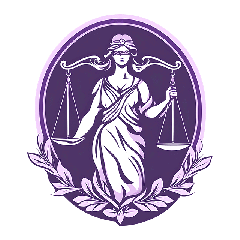PURITA MIRANDA VESTIL and AGUSTIN VESTIL, petitioners,
vs.
INTERMEDIATE APPELLATE COURT, DAVID UY and TERESITA UY, respondents.
G.R. No. 74431 November 6, 1989
Facts:
July 29, 1975, 3-year old Theness was bitten by a dog while she was playing with a child of the petitioners in the house of the late Vicente Miranda, the father of Purita Vestil in Cebu City. She was rushed to the Cebu General Hospital, where she was treated for “multiple lacerated wounds on the forehead” and administered an anti-rabies vaccine. She was discharged after 9 days, but she was readmitted a week later due to vomiting of saliva. She died of pneumonia the following day.
Seven months later, the Uys sued for damages alleging that the Vestils were liable as possessors of the dog Andoy who bit Theness. The Vestils rejected the charge and argued that the dog was owned by the deceased father of Purita Vestil, Vicente Miranda, that there were no witnesses to the biting, that the animal was tame, and the cause of death was pneumonia.
The CFI of Cebu dismissed the complaint. On appeal, the possession of the Vestils of the dog gave a different conclusion and made them liable for the charge.
Issue:
Whether the Vestils should be liable for mere possession of the dog that bit Theness.
Held:
Yes. It was determined upon the testimony of Dr. Tautjo that Theness died of pneumonia secondary to complications of rabies due to symptoms showing hydrophobia. The evidence of the child’s hydrophobia is sufficient to convince us that she died because she was bitten by the dog even if the death certificate stated a different cause of death. The petitioner’s contention that they could not be expected to exercise remote control of the dog is not acceptable. It is worth observing that the above defenses of the petitioners are an implied rejection of their original posture that there was no proof that it was the dog in their father’s house that bit Theness.
Article 2183 reads as follows:
The possessor of an animal or whoever may make use of the same is responsible for the damage which it may cause, although it may escape or be lost. ‘This responsibility shall cease only in case the damages should come from force majeure from the fault of the person who has suffered damage.
According to Manresa, the obligation imposed by Article 2183 of the Civil Code is not based on negligence or on the presumed lack of vigilance of the possessor or user of the animal causing the damage. It is based on natural equity and on the principle of social interest that he who possesses animals for his utility, pleasure, or service must answer for the damage which such animal may cause.
The ruling of the Court of Appeals and the monetary awards was approved except only as to the medical and hospitalization expenses, which are reduced to P2,026.69, as prayed for in the complaint, from the previous ruling awarding P12,000.00. While there is no recompense that can bring back to the private respondents the child they have lost, their pain should at least be assuaged by the civil damages to which they are entitled.
Petition denied against Petitioners.
